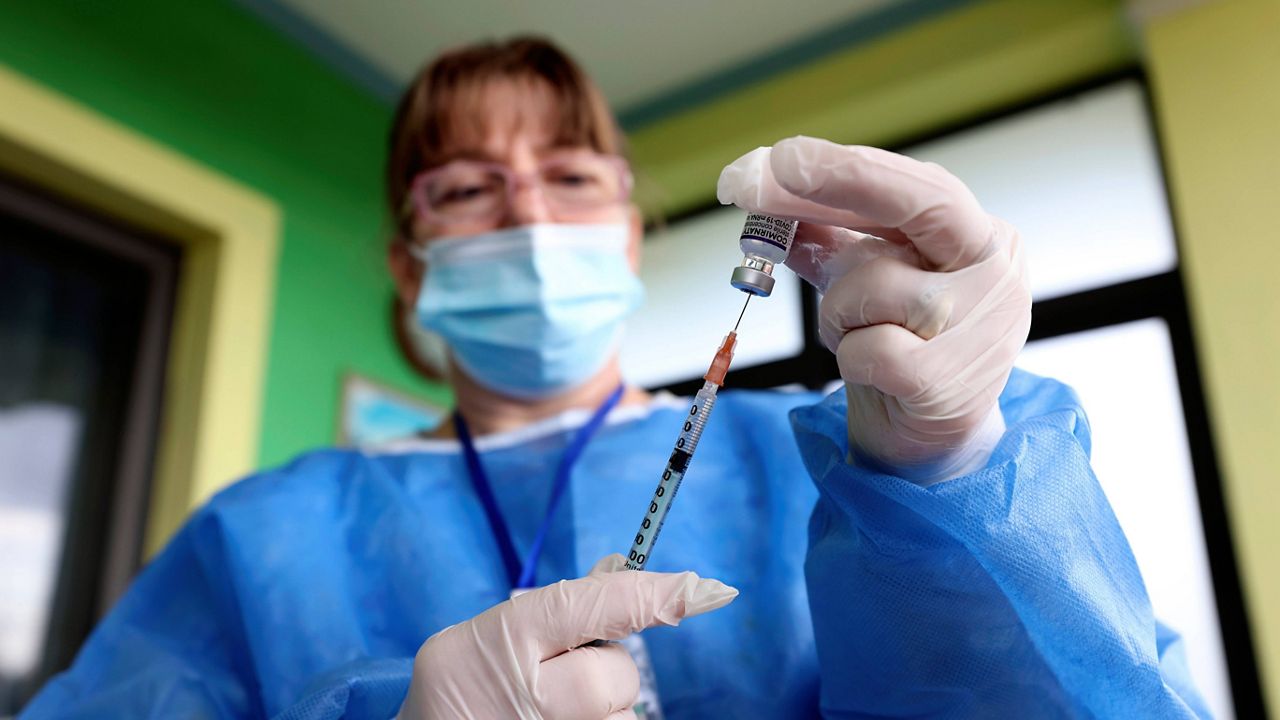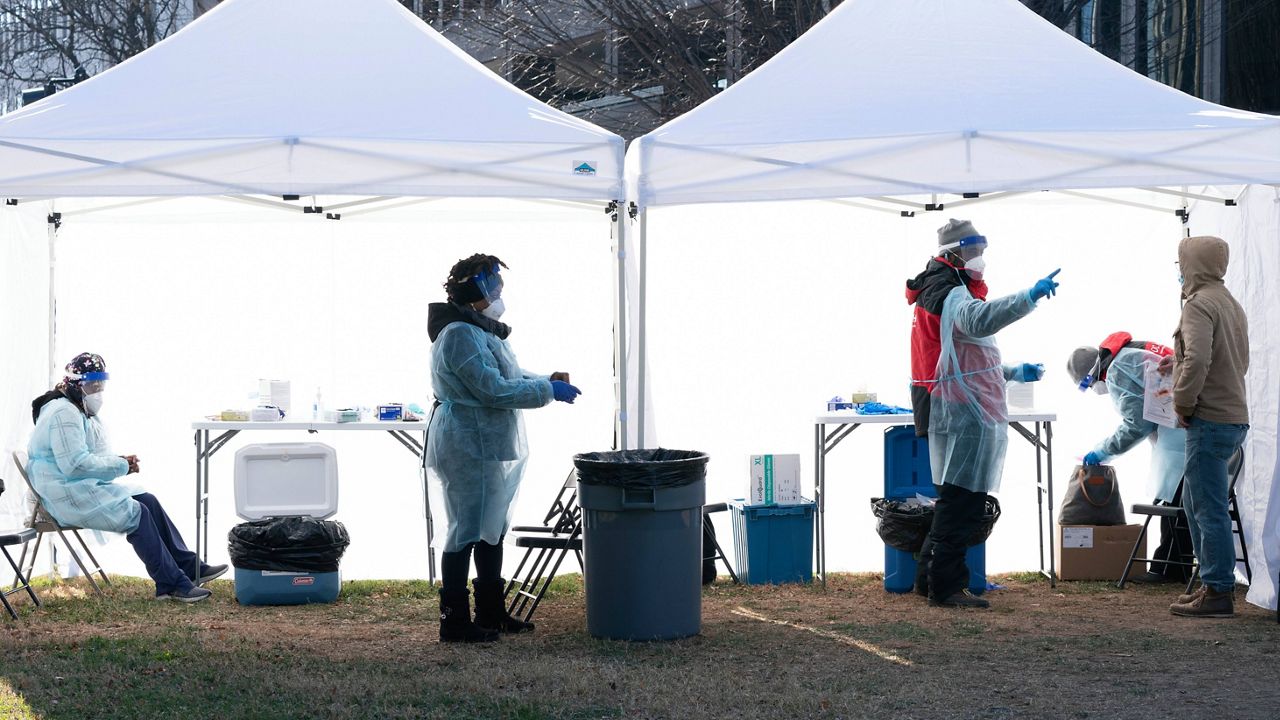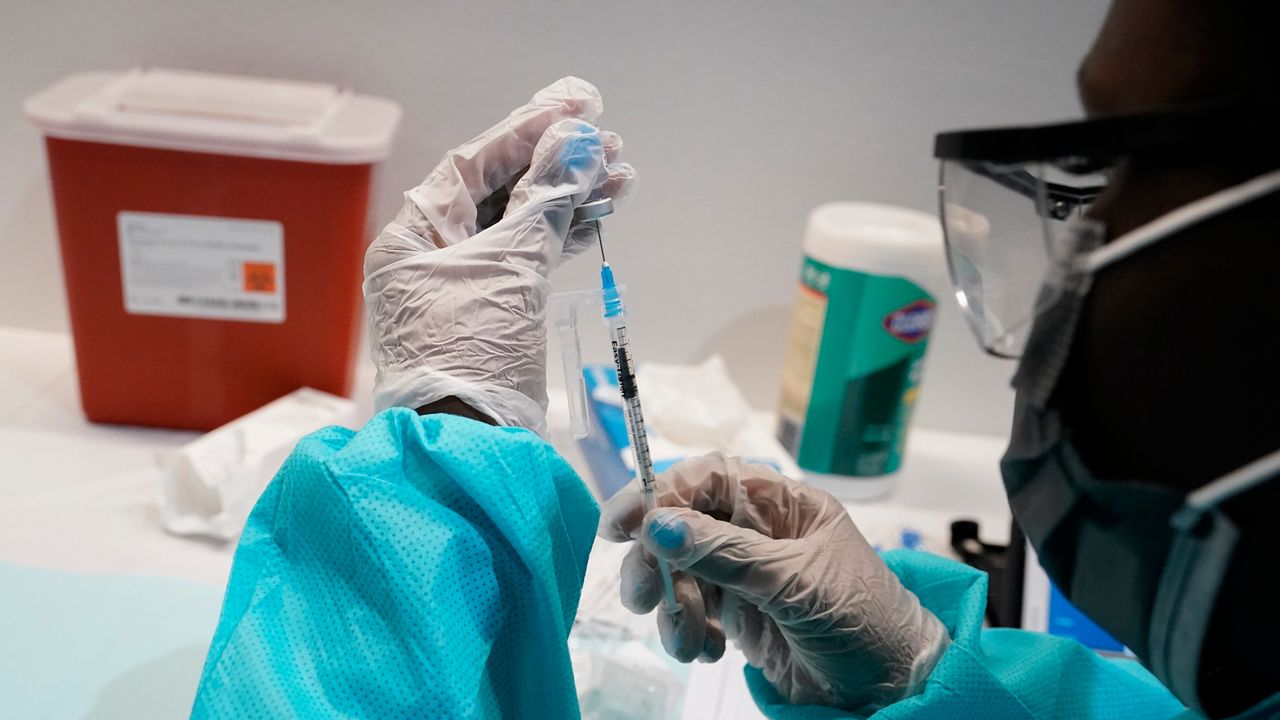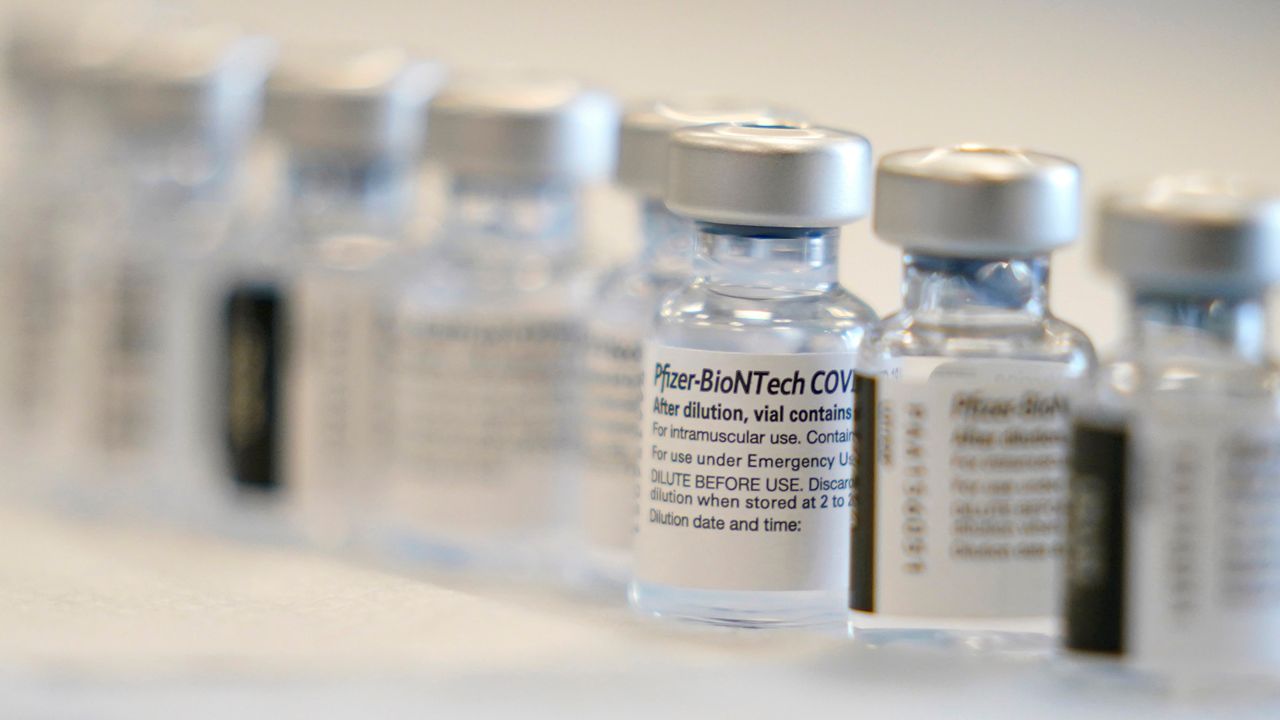Vaccines targeting the new omicron COVID-19 variant could take months to develop, the heads of Moderna and Pfizer said Monday.
What You Need To Know
- Vaccines targeting the new omicron COVID-19 variant could take months to develop, the heads of Moderna and Pfizer said Monday
- Moderna CEO Stéphane Bancel and Pfizer CEO Albert Bourla told CNBC the variant could very well weaken the impact of existing vaccines, but it’s unlikely it would render them useless
- Bancel said another possibility is to administer higher-dosage booster shots of 100 micrograms
- Bourla said Pfizer made its first DNA template of a omicron vaccine Friday and that the company could have a “vaccine in less than 100 days”
In separate interviews with CNBC, Moderna CEO Stéphane Bancel and Pfizer CEO Albert Bourla said the variant, first identified in South Africa, could very well weaken the impact of existing vaccines, but it’s unlikely it would render them useless.
“I don’t think that the result will be the vaccines don’t protect,” Bourla said. “I think the result could be, which we don’t know yet, the vaccines protect less.”
Much is unknown about the omicron variant, which the World Health Organization says has more than 30 mutations on the spike protein that binds to human cells. Several countries, including the United States, have restricted travel from South Africa and neighboring countries as a precaution.
Bancel said it would take months for Moderna to develop and ship a omicron-specific vaccine. He said another possibility is to administer higher-dosage booster shots of 100 micrograms. The initial two shots of Moderna’s vaccines are 100 micrograms each, but it’s booster shot is 50 micrograms.
“Depending on how much it (the efficacy) dropped, we might decide on the one hand to give a higher dose of the current vaccine around the world to protect people, maybe people at very high risk — the immunocompromised and the elderly — should need a fourth dose,” said Bancel, who added that the higher-dosage boosters “could be done right away.”
Moderna's chief medical officer, Dr. Paul Burton, told ABC's "Good Morning America" on Monday that they will know more in the coming weeks based on tests against the variant.
"We'll know from tests in the next couple of weeks how effective the vaccines are against this variant," Burton said. "How transmissible is it? We think it's probably quite transmissible. But how severe is the disease it causes? We don't know the answer to that question yet."
"While we think that vaccine effectiveness may come down based on the mutations seen in this virus," Burton said, "We should be able to get antibodies up" via booster shots.
Bourla said Pfizer made its first DNA template of a omicron vaccine Friday — the first step in the development process — and that the company could have a “vaccine in less than 100 days.”
It’s not yet clear if revamped vaccines are needed. Bancel said it will likely take a couple of weeks before enough data are available on the impact of the variant on current vaccines, and two to six weeks to learn if omicron leads to greater rates of hospitalization or death.
“And I think we need to be cautious that it could be more virulent, it could be as virulent or it could be less virulent,” he said. “And I think today, it's really impossible to know.”
He warned against looking at South Africa over the next couple of weeks to measure how dangerous the variant is because less than 5% of the country’s population is over 60 years old and “you don’t have a lot of comorbidity.”
Meanwhile, Bourla said he has a “high level of confidence” that Pfizer’s COVID-19 antiviral pill will remain effective against omicron.
“The good news when it comes to our treatment, it was designed with that in mind,” he told CNBC. “It was designed with with the fact that most mutations are coming in the spikes.”
Interim results from Pfizer’s clinical trial found the pill, Paxlovid, was 89% effective at preventing hospitalization or death. The drugmaker has asked the Food and Drug Administration to grant the medication emergency use authorization.
Ryan Chatelain - Digital Media Producer
Ryan Chatelain is a national news digital content producer for Spectrum News and is based in New York City. He has previously covered both news and sports for WFAN Sports Radio, CBS New York, Newsday, amNewYork and The Courier in his home state of Louisiana.








